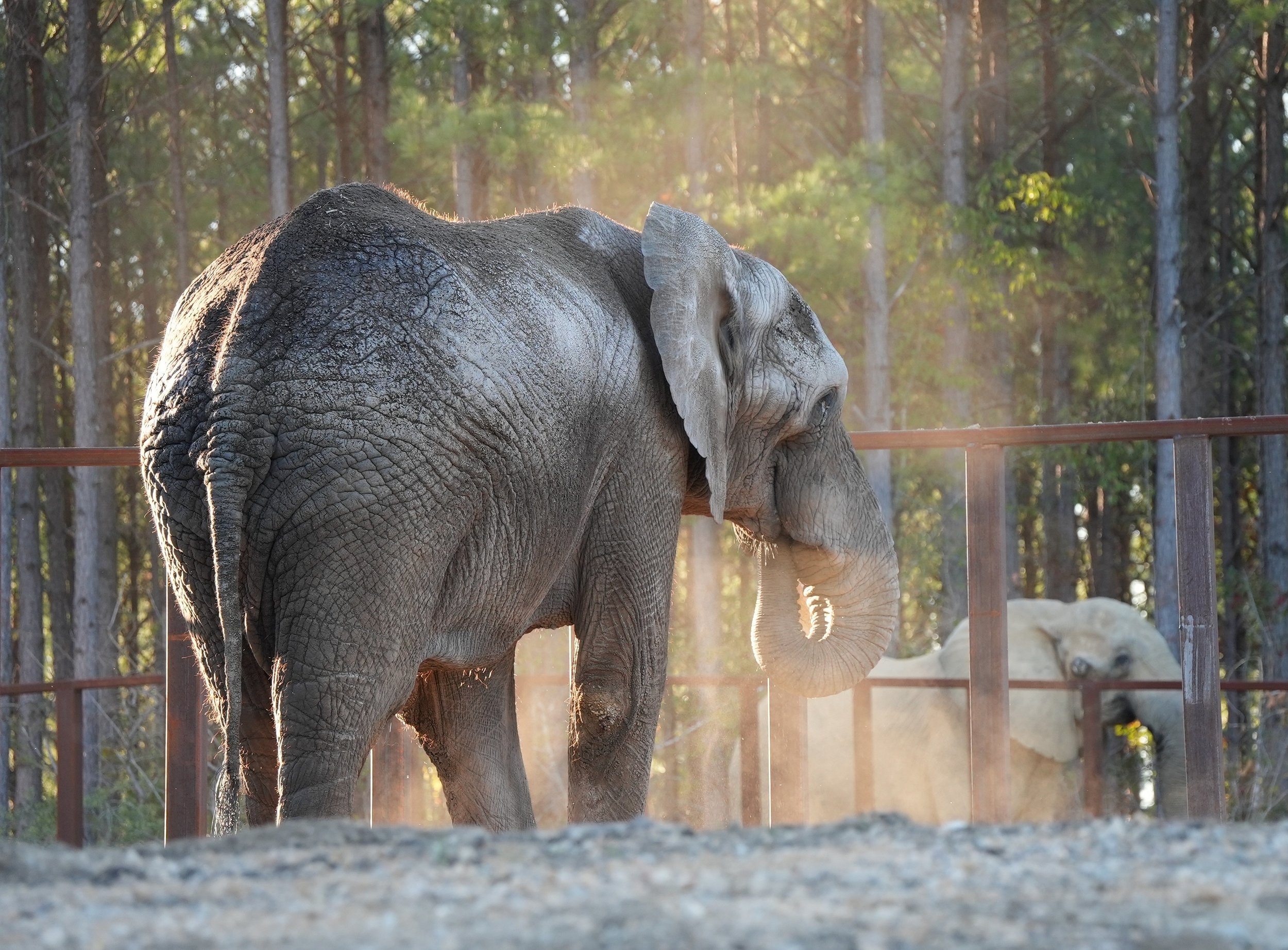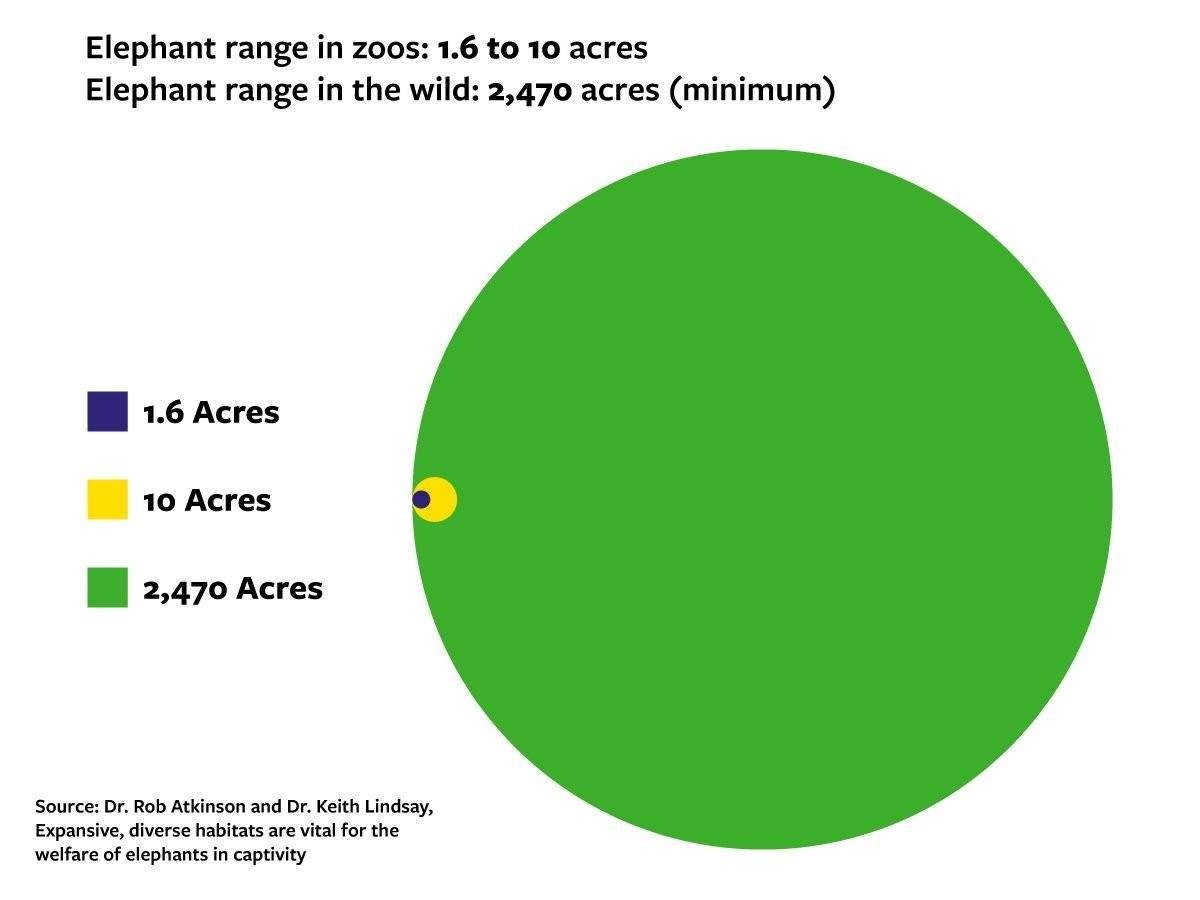Oakland Zoo’s last remaining elephant is sent to a sanctuary, in “watershed moment” for the evolution of zoos
The compassionate move comes after modern research into animal welfare has shown that elephants do not cope well in captivity, with zoo enclosures unable to meet the complex needs of elephants.
Osh at The Elephant Sanctuary in Tennessee. Credit: Oakland Zoo
Oakland Zoo’s last remaining elephant has safely arrived at his new sanctuary home.
Osh the African elephant had been living in a large 6.5-acre enclosure at the zoo.
But in a statement issued earlier this year, Oakland Zoo announced that the 30-year-old elephant would be relocated to a sanctuary, as the zoo said it could no longer offer the optimal welfare and social needs required for elephants.
“This space is not enough for the elephants’ social complexity that we think is necessary,” a representative of the zoo told ABC 7 News in July.
Now, the zoo’s animal care team have successfully made the 46-hour long road trip to carefully deliver Osh to his new home at The Elephant Sanctuary in Tennessee.
With Osh’s departure, Oakland Zoo is now without elephants for the first time in 75 years. The zoo says it has no immediate plans to procure another elephant, and that it will take this time to “reimagine the future of the elephant habitat”.
Osh interacting with new companion, Artie, at The Elephant Sanctuary in Tennessee. Credit: Oakland Zoo
Animal welfare group In Defense of Animals applauded the zoo’s commitment to prioritizing Osh’s health and needs.
“Osh’s release to sanctuary marks a watershed moment in the evolution of zoos, and a dawning of the next generation of more compassionate, elephant-free zoos that embrace modern scientific understanding, seek to engage rather than entertain, and prioritize animals over profit”, said Dr. Marilyn Kroplick, president of In Defense of Animals.
According to Dr. Kroplick, Oakland Zoos is only the second US zoo to concede that its comparatively massive 6.5 acre elephant exhibit is not enough room to meet the needs of the world’s largest land mammals.
Lack of space for elephants in captivity has become an increasing concern for Dr. Kroplick and other animal welfare experts.
The issue was highlighted in a recent study co-authored by renowned wildlife biologist Dr. Keith Lindsay, which compared the movement ranges of elephants in the wild and in zoos. Its findings show that wild elephants evolved to live in spaces 1,000 to a million times bigger than even a large zoo enclosure of 10 hectares (4.7 acres).
Credit: In Defense of Animals
“Elephants need vast landscapes to roam, forage, explore new territory, and find places to retreat from conflicts or when they don’t want company. These activities are vital for their mental and physical health”, explains Courtney Scott, Elephant Consultant for In Defense of Animals. “Zoos fail elephants largely by lack of vast roaming spaces, making elephants age faster and die at half the age of their wild counterparts.”
This sentiment echoes mounting scientific data and research suggests that zoos cannot fully meet the needs of elephants. Welfare experts say that most elephants in North American and European zoos demonstrate stereotypic behaviors, and suffer from psychological problems.
A comprehensive report by animal welfare group Born Free into the state of elephant captivity recently highlighted further issues in the zoo industry too. This includes an alarmingly high infant mortality in breeding operations, with 40 percent of infant elephants in zoos dying before reaching the age of five.
The report also pointed out the impact of zoos on wild populations, with the number of captive elephants increasing over the last 40 years mainly through the import of captured wild elephants.
In a sign of positive progress, this research and ongoing work by animal welfare and wildlife groups is leading to increased public awareness of the ethics of keeping animals in captivity.
Oakland Zoo’s compassionate relocation of Osh, for example, makes it the 41st zoo in the US to close or pledge to close its elephant exhibit.
Tell Los Angeles Zoo to follow in Oakland Zoo’s footsteps by retiring their only female Asian elephant, 57-year-old Tina, who was captured from the wild as a baby in 1966. Tina deserves to spend her remaining years in sanctuary where she will have the care, space, and companionship she needs. Sign the Species Unite petition here.
We Have A Favor To Ask…
Species Unite amplifies well-researched solutions to some of the most abusive animal industries operating today.
At this crucial moment, with worldwide momentum for change building, it’s vital we share these animal-free solutions with the world - and we need your help.
We’re a nonprofit, and so to keep sharing these solutions, we’re relying on you - with your support, we can continue our essential work in growing a powerful community of animal advocates this year.






